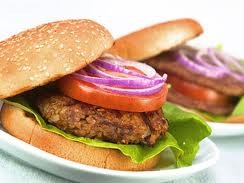 Last week’s announcement by the US Food Safety Inspection Service that it will introduce testing for six additional forms of E. coli in both domestic and imported manufacturing beef has sparked talks within the Australian export industry about appropriate responses.
Last week’s announcement by the US Food Safety Inspection Service that it will introduce testing for six additional forms of E. coli in both domestic and imported manufacturing beef has sparked talks within the Australian export industry about appropriate responses.
A new working group called the Australian Industry E. coli Panel held a teleconference late last week to discuss the implications of the policy move, to be activated from March next year,and how the Australian industry might respond.
While the USDA FSIS now has a laboratory method for testing the ‘Big 6’ E. coli strains, commercially there are limited methods available domestically, all which would require investment of capital for advanced laboratory testing equipment.
Other issues being scrutinised include the possibility of having product held-over for longer periods in the US due to the longer testing enrichment times that will be required.
The Australian Meat Industry Council says the working group panel is now in discussions with analytics companies about the likely availability of test kit technologies, and their ease of implementation and use. Further information is also being sought on the FSIS baseline micro survey on carcases for a full range of pathogens and indicators later this year with the intent to mirror, where possible, the US methodologies in Australia.
Initial engagement with the commercial laboratories was now underway, AMIC said.
Some Australian commercial stakeholders have reported US end-users requesting Australian suppliers to begin screening for the additional E. coli pathogens in advance of the March 2012 deadline.
The American Meat Institute last week questioned whether beef was being unfairly singled out under the new testing regime, an issue raised by former USDA food safety under-secretary Richard Raymond in his recent presentation at the AMIC conference ("Big changes ahead in food safety arena").
A large US packer and a major North American supermarket chain have already introduced testing programs for the six additional E. coli strains beyond the 0157 form which has been tested-for for years.
